John Legend: No Stranger To Success
John Legend is a man with a number of titles: musician, award-winner, philanthropist, feminist and father of two. Above all, though, he’s a success, as invested and passionate in his professional life as he is in his personal one.
At the age of 26, John Stephens made a bold move: he reluctantly agreed to his friends’ suggestion. Right before releasing his debut album, he changed his name to John Legend. He had always known he would make it in the music industry. Still, this was taking an immense risk. The son of a factory worker and a part-time seamstress, he grew up in a small town in Ohio. After meeting Kanye West through some friends, they started working together, and Legend released his debut album Get Lifted in 2004. Collaborations with Jay-Z, Alicia Keys and Lauryn Hill quickly followed. Legend won the Academy Award for Best Original Song and Golden Globe Award in 2015 for co-writing the song “Glory” from the film Selma. In 2018, Legend was cast in the title role in the live concert production of Jesus Christ Superstar.
Has he attained legendary status? It could be a topic up for debate, but one thing is certain: Legend is well-known the world over, with YouTube views in the billions and 10 Grammy Awards to his name. His wife, Chrissy Teigen, is a star in her own right. A half-Thai model signed to IMG, she has appeared in numerous TV shows in America and has published several books. The two married in Lake Como, Italy, in 2013 and have two kids, a boy and a girl, born in 2018 and 2016, respectively.
One might say it’s not hard after all the success he’s had, but there’s an air of tranquil optimism to Legend. He arrives in a joyous mood and is easy to work with. His self-confidence is apparent, but he’s approachable and easy to talk to. We were eager to ask him both what annoys him and what gives him hope.
BEGINNINGS
Q. Happy (belated) birthday. How does it feel to be 40?
A. It doesn’t feel that different. I feel the same as I did last year. But I did have an awesome party.
Q. You grew up in the Midwest, then went to Philly. How did those places influence your music? Do you think you would’ve developed a different style if you came up in L.A. or NYC?
A. My upbringing affected my music a lot. I grew up in the church and played a lot of gospel music. That certainly affected my music. I grew up in a family who really loved Motown, which of course is based in the Midwest, even though it was globally loved and appreciated. And then working in Philly certainly did it, too. I started working with a lot of writers and producers there. And working with The Roots over the years. Being in Philly at the time I was there was really influential because a lot of the neo-soul movement was developing and starting during the time I was in college. Th at definitely impacted me and influenced me.
Q. What attracted you to music at such an early age (seven)? Most kids at that age are playing ball outside or Lego inside.
A. I grew up in a musical house. Everybody loved music at my house. We had a piano, we had a drum kit. I went to church multiple times a week, where there was a lot of music. I was surrounded by music all my life. From a very young age, it was very clear I wanted to play something. I started taking piano lessons when I was four, and I haven’t stopped playing since. Sometimes it’s hard to get motivated to practise and do things that no one will ever see, but eventually, when you perform, it shows how much you practised. The performing part is fun: you get to connect with other people; you get to show how much you’ve worked. People don’t realize how much work you need to put in before the performance to do a good job.
Q. Did your parents support your musical ambitions early on?
A. Of course, they did. Absolutely they did. They always believed in me and supported me.
Q. What were your influences developing as a pianist, as well as a singer and a songwriter?
A. My main influence as a pianist was my grandmother. She taught me how to play gospel piano. More than any one individual, she influenced my style. As a singer, I think it just developed over the years listening to different artists. I listened to different artists such as Commissioned, The Winans, Stevie Wonder, Marvin Gaye, Nina Simone, Nat King Cole. When I was a teenager coming up, we would sing a lot of new jack things such as Jodeci, Boyz II Men. A lot of those male groups were big at the time. So it’s been a range of things. Definitely Stevie Wonder and Marvin Gaye as far as songwriting and Donnny Hathaway, Al Green. Smokey Robinson, too.
Q. I read that you got admitted to Harvard University, but chose not to go. Can you explain why?
A. I got accepted to Penn, Harvard, Georgetown and Morehouse. Penn gave me a better finance rate offer, and I needed the money.
Q. You did go to college, and what struck me is you graduated; whereas, many musicians will either try to be professional after high school or start college, but will drop out in the middle to pursue music. Was getting a degree important for you?
A. It was important, but it wasn’t everything to me. It was important to finish. I just like to finish things that I start. That’s just a part of my personality.
CAREER
Q. At the beginning, you even had a day job as a management consultant. How was it?
A. It was fine. I learned a lot, I met a lot of great people. Some of my very best friends now are people I met during that time and worked with. But I knew what I really wanted to do. At night, after work, I would go home and write songs. I was recording with Kanye during the time I was working there. I knew what I really wanted to do, but it just took a while for it to come together.
Q. Kanye West played a crucial role in your career launch. People know him as a performer and a rapper, but how is Kanye as a producer? What’s the biggest misconception about him?
A. It’s interesting because he started his career as a producer, that’s when we were working together. And a lot of his struggles were to get people to realize he was also an artist. During that time we were working together, he was working on his demo as an artist, and I was working on mine. We were working together. He produced mine, and I wouldn’t be where I am with my music without the start he gave me. He has a lot of opinions. He wants it to be perfect. He’s a very engaged producer. When he’s producing, he gets very into it. He shows himself — it’s not an act. What people are seeing from him is him.
Q. I love Wake Up!, your collaboration with The Roots. Are you planning to do more records like this in the future?
A. I love doing that album, it’s one of the favourite albums I’ve done. I’m sure I will do more things like that in the future.
Q. “All of Me” has more than one billion views on YouTube — 1.4 billion, I think. Do you follow this, the count? Can you explain it? Were you ever worried this success would label you as a “love song” guy, even though your body of work covers a whole range of topics?
A. I’m aware of it. I’m grateful that so many people love the song and that it meant so much to so many people. It’s not the only measure of impact and the only measure of quality of the song, but it’s pretty nice that so many people love the song and want to listen to it over and over. I get frustrated sometimes if I only get depicted as the “love song” guy because, obviously, my repertoire has more diversity than that, but I understand that a lot of people love my love songs. I’m grateful for that.
Q. You’ve won an Emmy, Grammys, an Oscar and a Tony. What do these trophies mean to you, if anything? Does one mean more than the other?
A. They do mean something. The Grammys were important, especially at the beginning of my career, when I won Best New Artist. It helped establish my career. I’ll never forget those. I think the Oscar was really huge because it was an opportunity to write and perform for the film Selma. Th e chance I got to speak and sing in front of the whole world when I won the award — it was pretty amazing.
Q. You’ve been in the entertainment industry for close to two decades. In your opinion, how do you think the industry has changed? Similarly, how do you think you’ve changed in those two decades?
A. Streaming has changed things a lot. When I started out, people were still buying CDs. We were briefly worried about piracy, Napster and all that. That kind of disappeared, and legitimate streaming took over. It’s changed everything. People used to buy albums all the time, and now most people are listening through streaming services. They’re not buying a particular album, but just buying a subscription to a service. I think that’s changed the business to a degree, and I think the business has taken a while to catch up, but now we’re trying to really adjust to that. It makes us kinda rethink the model of how we release music. Do we focus on albums anymore, or do we release singles? More people are releasing EPs with just a few tracks, rather than a full album. A lot of people are finding their way in this new era. Personally, I haven’t changed that much. We’ve changed our marketing. But as a writer, as a creator, I don’t think I’ve changed.
Q. If you had to choose one highlight in your career, what would it be and why?
A. I think that moment winning the Oscar was amazing. The moment I won Best New Artist at the beginning of my career was amazing. The success of “All of Me” has been a defining moment, too.
Q. During our shoot, you were singing all the time between takes. Is singing your hobby, as well as your job? Do you sing a lot around the house? Do you have a specific routine to keep your voice in shape?
A. Oh yeah. I sing all the time at home. I sing to my kids; it’s just part of my life. I do vocal exercises and warm up. When I’m on tour, I don’t drink. I drink lots of water, try to get a lot of rest. I don’t speak much during the day when I’m on tour.
Q. You’re a singer who works with a lot of rappers. You’re in a special position as someone surrounded by hip hop, but at the same time, you’re not a rapper. I’ve noticed the new generation doesn’t really distinguish between rappers and singers; they listen to both indistinctly. But I’m curious to know, as a musician, which part of rap do you relate to the most? Is it the rhythm, the flow, the lyrics?
A. Nowadays, every rapper is singing, that’s why there’s the confusion. [Laughs.] When I was younger and growing up and going to clubs, my favourite rappers were people like Jay-Z and Biggie. I still like people who rap. I know every rapper is singing now, but I still enjoy the art of just rapping. I don’t mind that rappers sing, but I get a little bit bothered by hearing so much Auto-Tune on the radio now. It kinda bothers me a little bit. I don’t enjoy the sound of Auto-Tune as much as some others do. I like to just hear people rap like Jay-Z or Pusha T.
“I get frustrated sometimes if I only get depicted as the “love song” guy because, obviously, my repertoire has more diversity than that…”
Q. Can you tell us about your future musical plans? When can we expect your new album to be out?
A. We don’t have a date or anything. I’m going to start working a lot in the next couple of months on new music, and we’ll probably put something out by the end of the year. I wrote a few songs last year before I started the Christmas album, but then I had to shut it down for a few weeks. I have a few songs, but I’m going to work on some more, now that I have some time.
Q. You’re the new voice of Google for its Google Assistant app. Can you explain how this came about?
A. We’ve had quite a good relationship with Google. We’ve done a lot with them, with their phones, with Google Assistant. They asked me to be one of their voices, and I thought it would be fun. It was interesting. You have to do a lot of recording to be the voice of Google Assistant. It was quite a lot of fun.
Q. So would you use Google Assistant yourself? That could get very weird.
A. No. It would be a little too weird.
Q. Your company, Get Lifted, also produces movies. How involved are you in this? Do you approve every movie personally?
A. Absolutely. At least, I read the script or the pitch and decide if I want to get involved. We don’t do anything significant without my approval. Anything we do, I want to make sure I’m into it.
PERSONAL LIFE
Q. If you could go back in the past and change something in your life, what would it be?
A. I don’t know that I would change much. Obviously, we make mistakes along the way, but everything I’ve done has led me to where I am. And I’m really happy with where I am now.
Q. You and Chrissy have such a great, candid relationship with each other. What would you say are the secrets to having such a wonderful marriage like yours?
A. I think, first of all, you have to be with someone you really love and you really have great chemistry with. Chris and I have great chemistry; we enjoy each other’s company. We enjoy being at home together and watching TV on the couch. It starts with enjoying the company of the person you’re with and really respecting and loving that person. Th en it’s important to communicate and support each other’s career and aspirations. I think we do all of that.
Q. How do you think having two children has changed you?
A. Another aspect of being a good partner is making sure you work together when it comes to child rearing. We really do work as a team together; we support each other, we help each other. It’s never just her doing it, or just me doing it. It’s both of us helping each other.
Q. Obviously, you also change diapers.
A. Yes, indeed.
Q. In your new commercial with Pampers, there’s an underlying message of men also doing the dirty work, so to speak, in a marriage. I wanted to ask you, what else do you think men can do to help balance the gender scales in the world?
A. One, we have to be as helpful as possible when it comes to kids. On a larger level, I think society has to do everything possible to help women when they want to get back to work. That means co-parenting. And on a broader level, making it easier with childcare when women want to get back to the workplace.
Q. Recently, you won a Best Dressed award from a fashion magazine. Can you describe your style?
A. My style is focused on a lot of good tailoring — well–made clothes. But because of who I am, I always want a little bit of a fl air to everything I do. I love classics. I’d say I like mixing the flashy and the classics in the right kind of combination.
ACTIVISM
Q. You’ve never been afraid to make your opinions known. What advice would you give to others to also be unafraid of being themselves?
A. I think everybody is not outspoken. It’s up to each artist, each person, to decide what they believe in and what they care about the most. I think the best artists are the ones who are honest with their fans, authentic with their fans. If you’re passionate about something, it’s great for you to share that with them.
Q. You’re also a strong philanthropist. To what would you attribute your charitable and philanthropic nature?
A. It’s something I’ve always wanted to do. I’ve always felt that if you have a lot of success in life and a lot of influence, and you have the ability to help other people, you should.
Q. What do you think is the most pressing issue the world needs to pay attention to right now?
A. On a global level, I think climate change is probably the most important thing facing the world right now. Th ere’s a lot individuals can do, but a lot of it, too, depends on governments and larger organizations doing the right things. What we need to do is put as much pressure as we can on them and put incentives in place for them to do the right thing. Th at’s probably the most pressing issue in the world. I think other issues such as poverty and income inequality are important. In America, a major issue I care about is the criminal justice system, and I spend a lot of time focusing on that, too.
Q. Is that something you will work on more in 2019?
A. Absolutely. We have an organization called Free America, and we will do a lot around that issue.
Q. Sustainable development is important to you, and you’ve even worked with the Earth Institute on this. Can you explain what the stakes are? Does that also link up to your work to end poverty?
A. Yes, I worked with the Earth Institute. I’ve helped to fundraise for other organizations that promote sustainable development. Honestly, that’s one of the biggest issues facing the world right now. Th ere are a lot of organizations doing a lot around that. It’s important our governments are involved. It requires big changes, systemic changes and responses to what’s really a global crisis.
Q. Education is also another topic important for you, as you’ve donated a lot of money to your high school. Do you think it’s the key to solving some of America’s current problems?
A. Oh, absolutely. I think our schools are far behind where they need to be. Overall, we’ve de-emphasized public education. We need to do a lot better. There are a lot of countries doing a lot better at public education than we are. It’s a major flaw in the American system that we don’t educate our kids better in terms of public education.
Q. You’ve also said, “All men should be feminists. If men care about women’s rights, the world will be a better place.” There seem to be some resistance to this idea from a segment of the male population in America right now.
A. Yes, I think there’s backlash. I don’t really understand it. I don’t understand what men think they have to lose by women doing well. Women are half of the population, and we should maximize everyone’s chances. Women are half of our brain power, half of everything. Why shouldn’t we make the most of all of our people, rather than just half of them? It feels silly to me that you would be against women having equal rights. It doesn’t mean men and women are exactly the same. It doesn’t mean there aren’t differences between men and women, but it means everyone should have the opportunity to live up to their fullest potential. There shouldn’t be any barriers when it comes to hiring, when it comes to education. Societies are better off when women are doing well. Every man has women in his life, whether it’s a wife, a mother, a sister or a daughter. How would you not want them to do well? Of course. And would you not want them to be in a world where they’re judged on the content of their characters and what their skill levels are and given opportunities just like your son would get?
“There shouldn’t be any barriers when it comes to hiring, when it comes to education. Societies are better off when women are doing well.”
Q. It took a lot to be the only artist to appear in the Surviving R. Kelly documentary. What made you decide to step out and let your voice be heard?
A. I understand that everybody doesn’t want to be in every documentary, and some of these subjects are difficult to talk about, but for me, it was simple. My friend was directing it — someone I worked with quite a bit with on criminal justice reform and other issues. I was happy to do it as a favour to her. Also, a group of friends of mine have been working with the victims of rape in Chicago, including survivors of R. Kelly. They’ve been working in the Mute R. Kelly movement, where they protested outside of his concerts. I’ve seen their work, and I thought it was important to highlight the work they had been doing and highlight the voices of these young girls who had been abused.
Q. Did you face some backlash?
A. Yeah, I’ve seen some backlash. I’ve seen that some people on Twitter were defending R. Kelly, etc., etc. They were saying, “Why don’t you go after this and that other person?” trying to deflect, basically, instead of focusing on the issue that this man has been abusing girls for decades now and has gotten away with it.
Q. You just released “Preach,” which is a politically themed song dealing with the current situation in America. The video is quite moving. Do you see yourself infusing your music with your activism and your political opinions in the near future?
A. This has been a part of my work for most of my career. I’ve always believed that part of being an artist was using my platform to speak the truth about social and political issues. Nina Simone said it’s an artist’s duty to reflect the times, and Paul Robeson said we were gatekeepers of truth. I see myself as trying to carry on the tradition of artists like them and others.
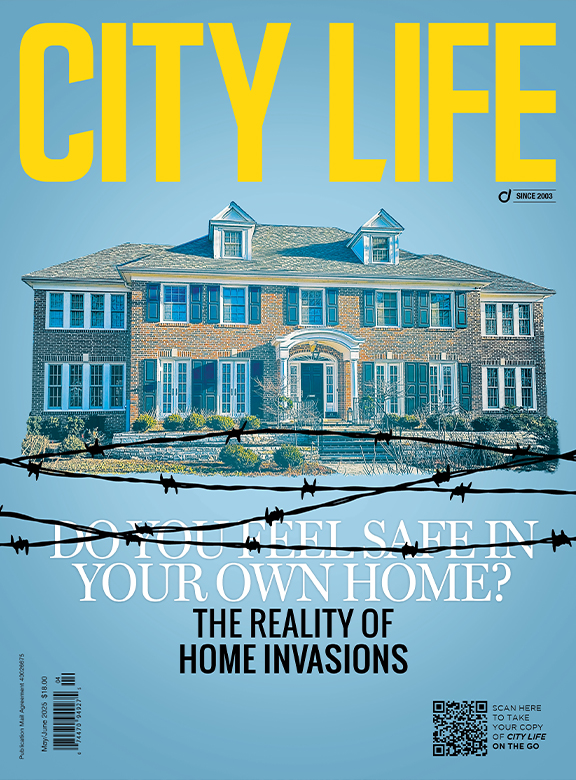






































































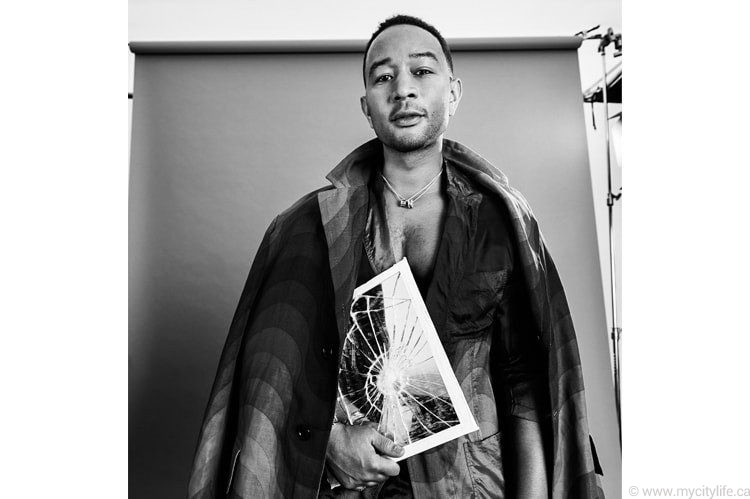
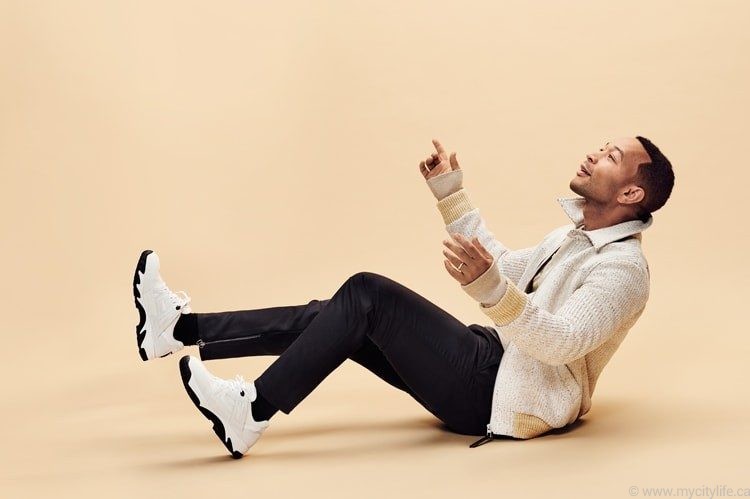
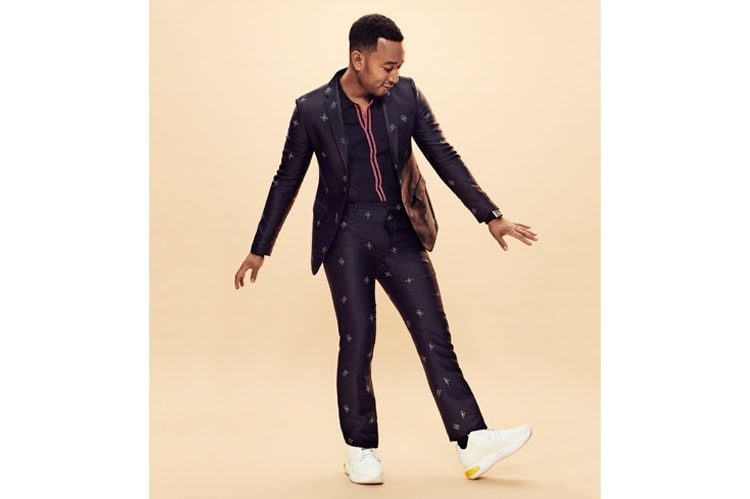
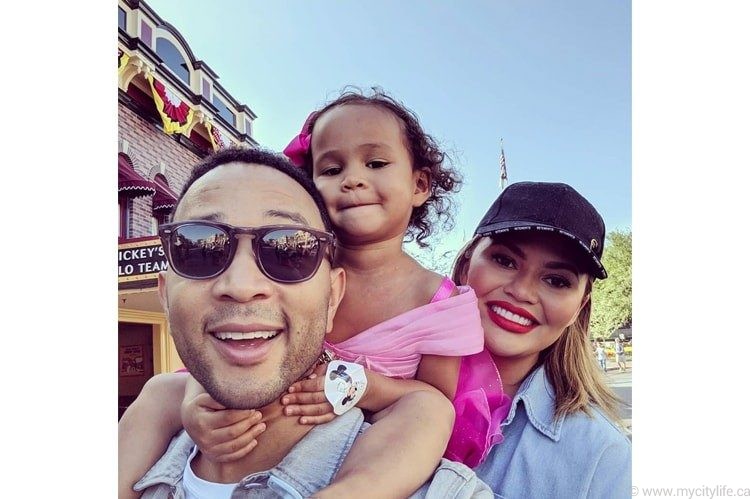
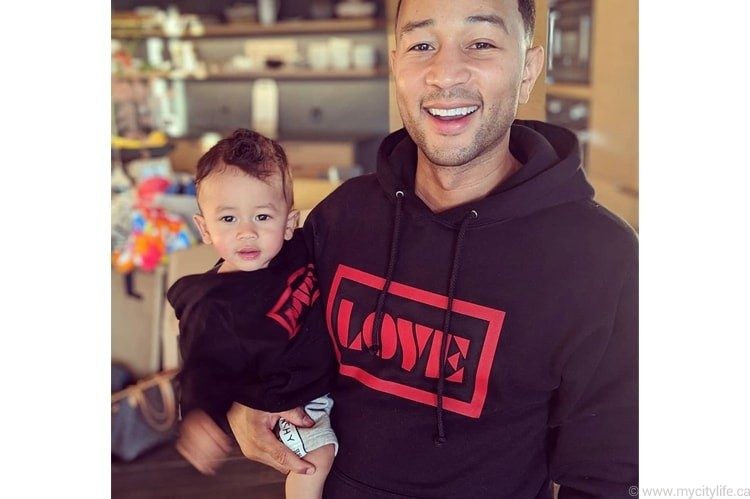
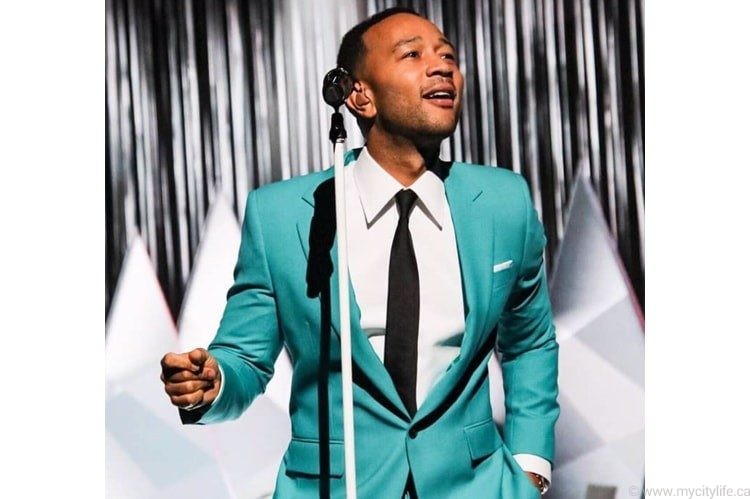



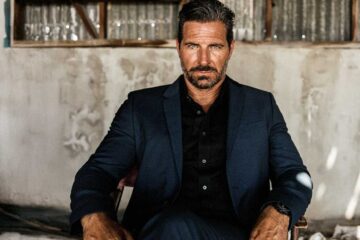
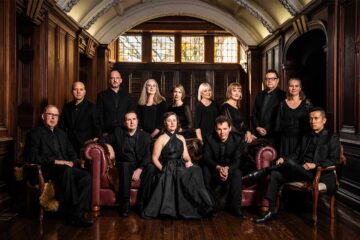
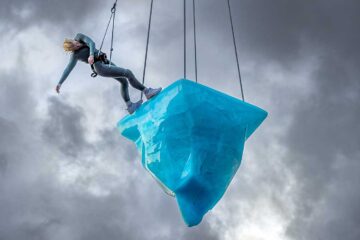
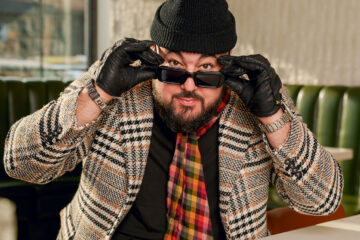
No Comment